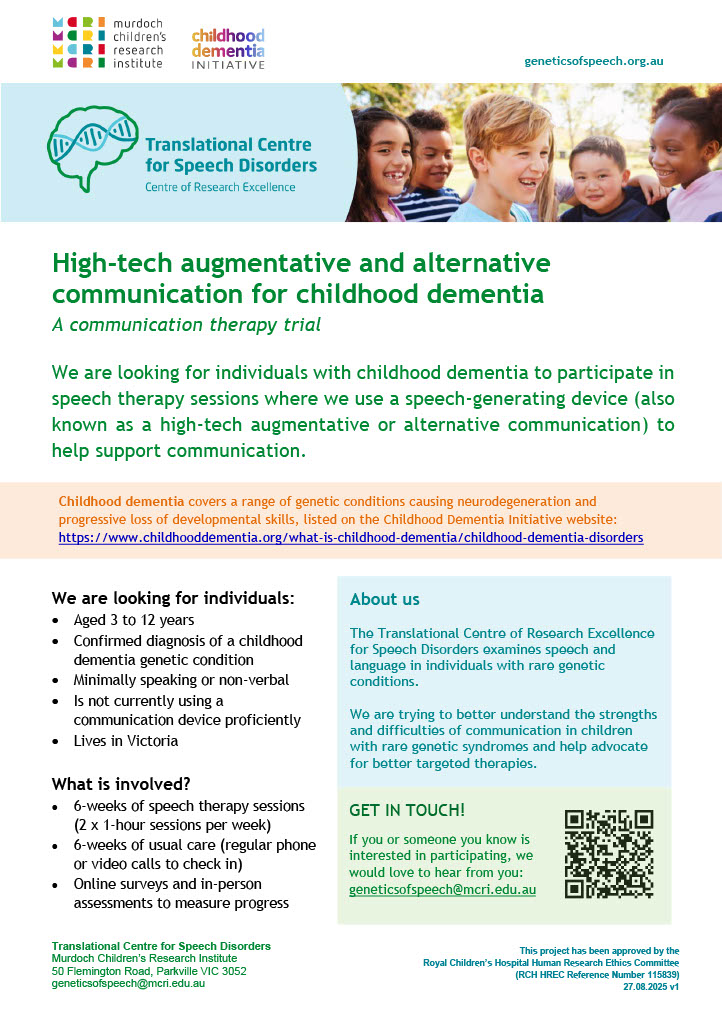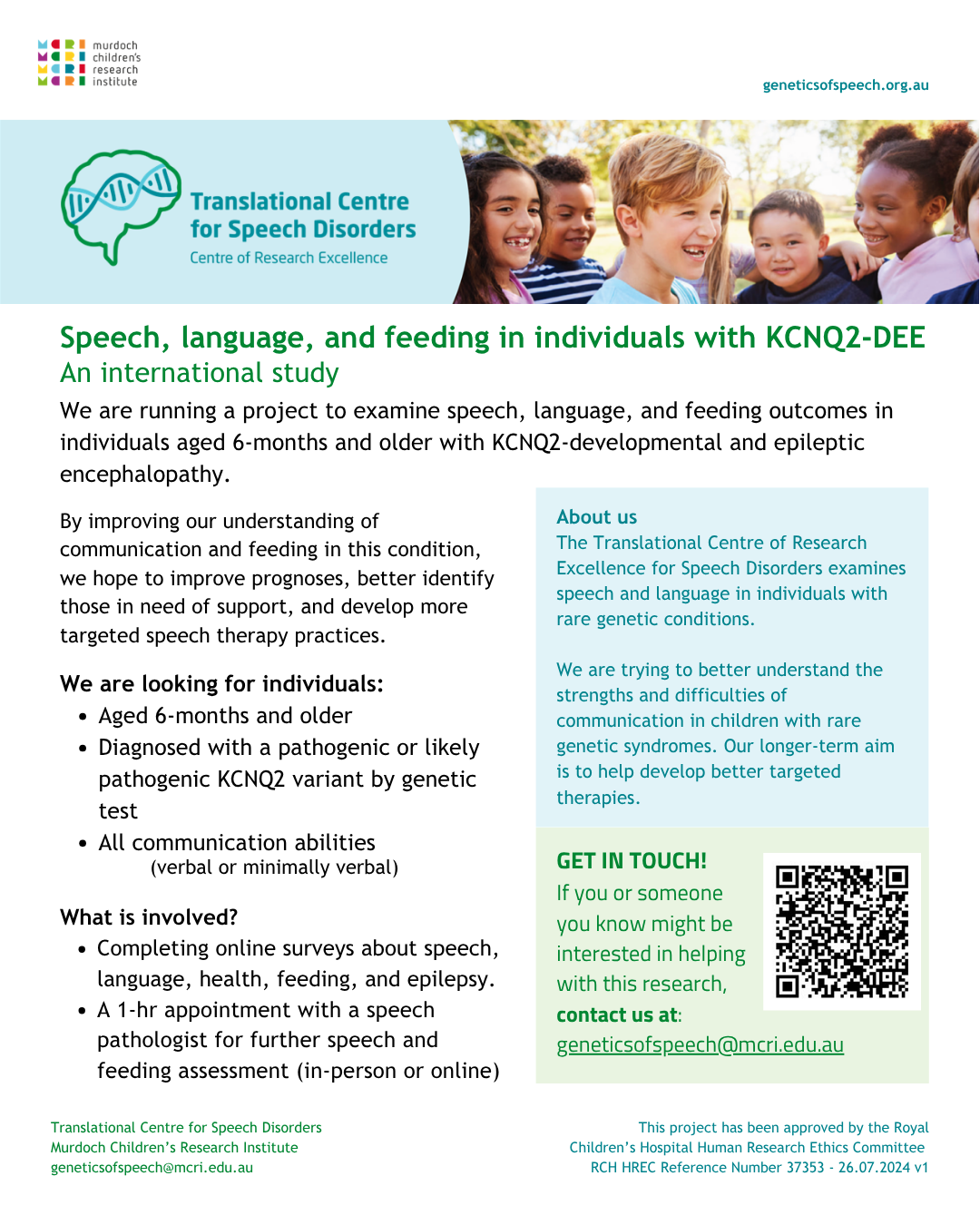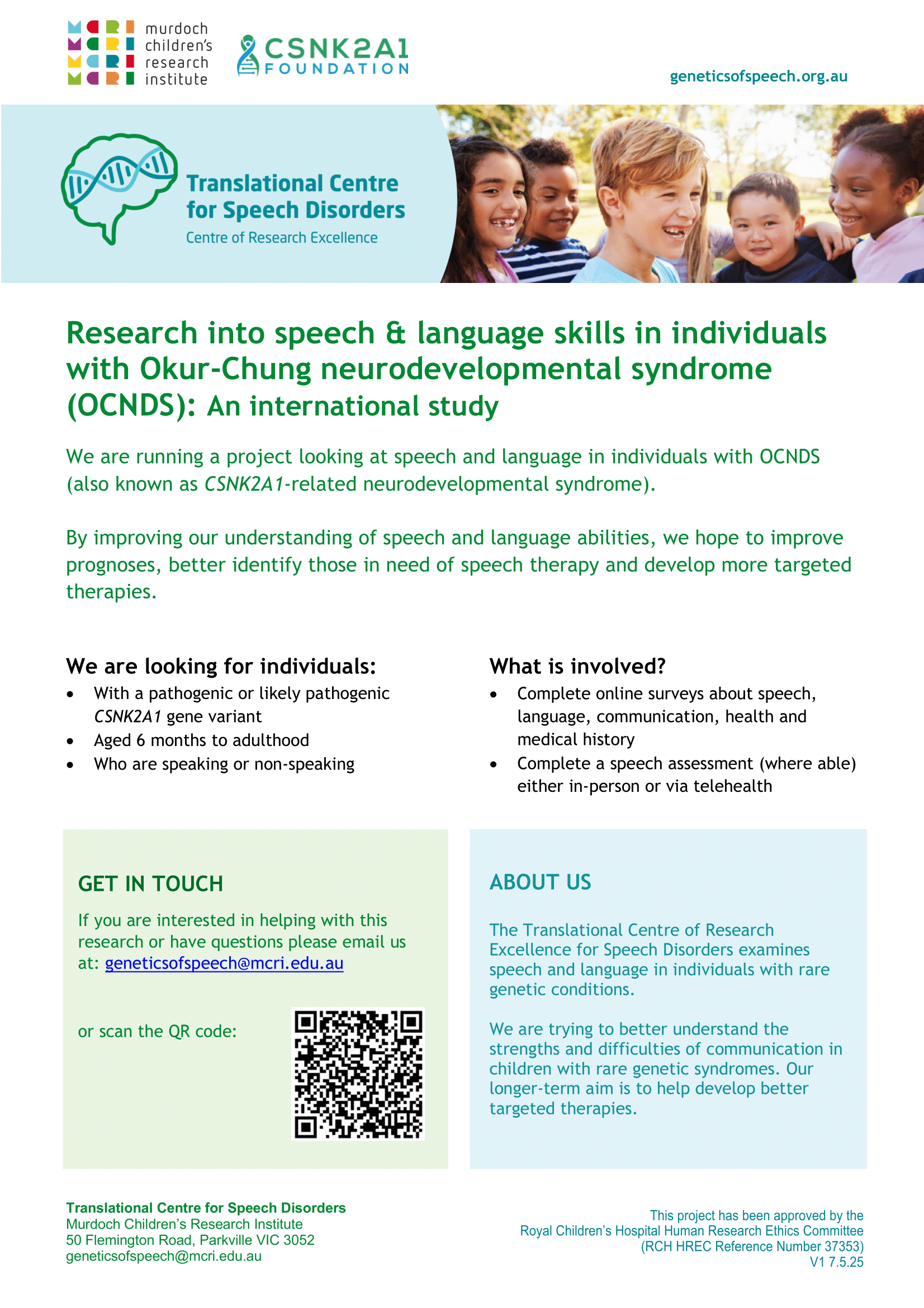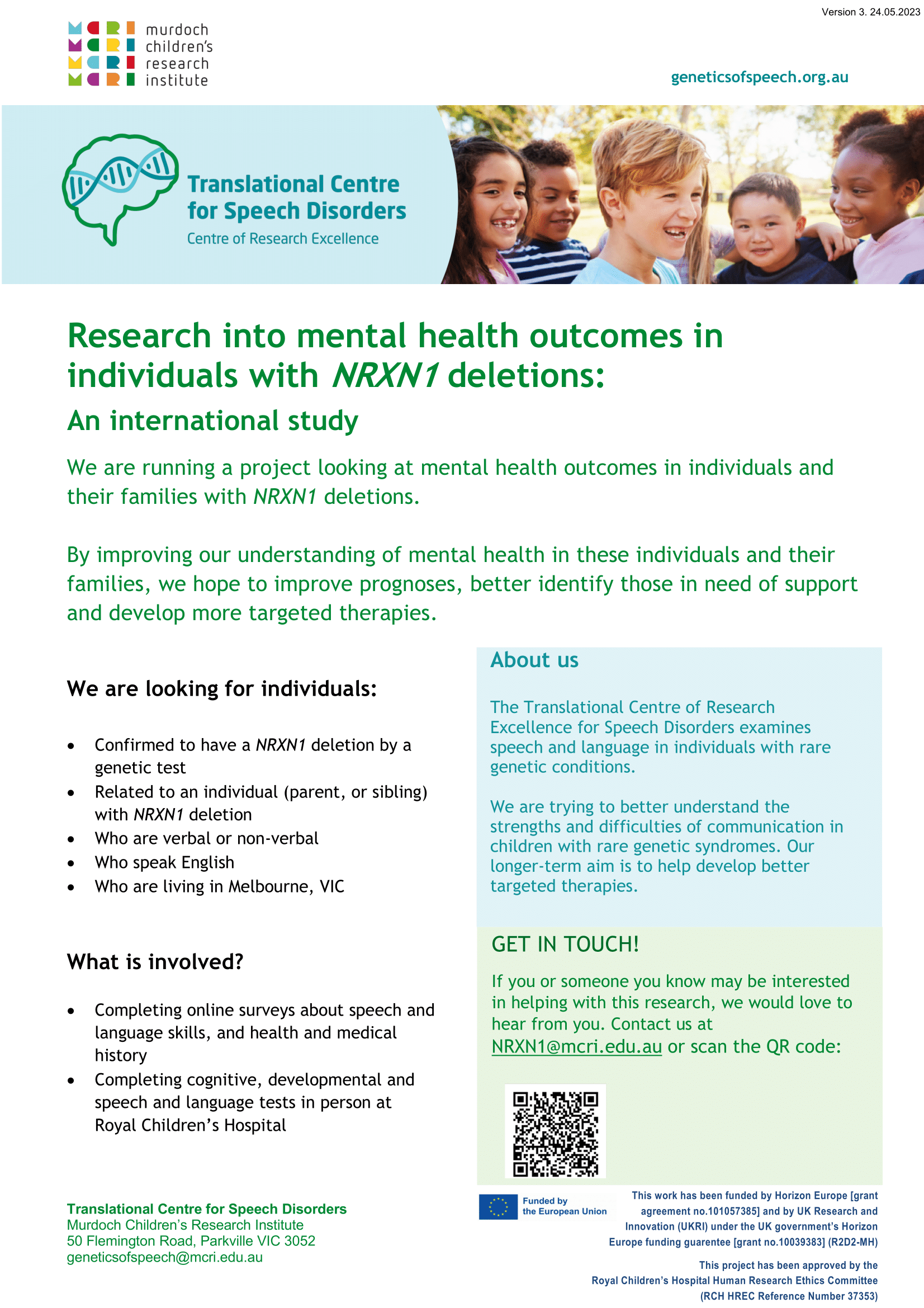Studies Recruiting
Understanding the genetics of stuttering in family 'trios'
We are recruiting people with stuttering and their parents for a new study looking at gene changes related to stuttering.
We are looking for individuals:
• Aged 5 years+
• Stuttering is persistent, has not responded well to therapy, and/or significantly impacts everyday life
• Both biological parents able to participate
What’s Involved:
• Saliva or blood sample
• Surveys about speech, language, and health
• Online or in-person meeting
If you are interested in participating or if you have questions please email us at geneticsofspeech@mcri.edu.au
See more information in our flyer here
High-tech augmentative and alternative communication for childhood dementia

We are recruiting for a new study for individuals with childhood dementia to participate in a communication therapy trial.
Want to know what encompasses childhood dementia? See more here
We are looking for individuals:
• Aged 3 to 12 years
• Diagnosed with a childhood dementia genetic condition
• Minimally speaking or non-verbal
• Not currently using a communication device proficiently
• Living in Victoria
What’s Involved:
• 6 weeks of speech therapy sessions (2 x 1hour sessions per week)
• 6 weeks of usual care
• Online surveys and in person assessments to measure progress
If you are interested in participating please register your interest here or if you have questions please email us at geneticsofspeech@mcri.edu.au
See more information in our flyer here
Speech, language, and feeding in individuals with KCNQ2-DEE
We are recruiting for a new study looking at speech, language, and feeding in people with KCNQ2 Developmental and Epileptic Encephalopathy.
We are looking for individuals:
• Aged 6 months to adulthood
• Diagnosed with a KCNQ2 variant by genetic test
• Verbal or minimally verbal
What’s Involved:
• Online or in-person meeting
• Surveys about communication, feeding, epilepsy, and health
• Surveys available in English, French, Dutch, German, Spanish, Portuguese, Italian, Polish, or Chinese
If you are interested in participating or have questions please email us at geneticsofspeech@mcri.edu.au or register your interest here
See more information in our flyer here

Okur-Chung neurodevelopmental syndrome (CSNK2A1-related condition)

Our researchers are investigating speech and language in individuals with OCNDS (also known as CSNK2A1-related neurodevelopmental syndrome). By improving our understanding of speech and language abilities, we hope to improve prognoses, better identify those in need of speech therapy and develop more targeted therapies.
We are looking for individuals:
• With a pathogenic or likely pathogenic CSNK2A1 gene variant
• Aged 6 months to adulthood
• Who are speaking or non-speaking
What is involved?
• Complete online surveys about speech, language, communication, health and medical history
• Complete a speech assessment (where able) either in-person or via telehealth
This is an international study and surveys are available in English, French, Dutch, German, Spanish, Portuguese, Italian, Polish, or Chinese.
Please register your interest by emailing us at geneticsofspeech@mcri.edu.au Please see more information on the flyer here
Genetics of Speech Disorders
Researchers from the NHMRC Centre of Research Excellence - Translational Centre for Speech Disorders are investigating the genetic causes of severe speech disorders such as childhood apraxia of speech (CAS), dysarthria and severe phonological disorder. Although genetic factors are thought to play a significant role in speech and language disorders, little is understood on the genetic bases of these conditions. Currently, many treatments for speech and language disorders focus on symptoms only without targeting the underlying cause of the problem. Learning more about the genetic and neurobiological basis of speech and language disorders will help us identify who may be at risk and allow us to develop more targeted treatments.
Research into mental health outcomes in individuals with NRXN1 deletions
Researchers from the NHMRC Centre of Research Excellence - Translational Centre for Speech Disorders are currently investigating factors that influence mental health outcomes in individuals and their families with NRXN1 deletion. This work is performed in collaboration with Thomas Bourgeron, Louise Gallagher and other Chief Investigators on the EU-Horizon grant on ‘Risk and Resilience in Mental Health Conditions’.
Genetically, NRXN1 deletion is known to play a significant role in neurodevelopment and disruptions of this gene can lead to conditions such as autism spectrum disorder, attention deficit/hyperactivity disorder, intellectual disability, language difficulties and subtle movement problems. Some individuals with NRXN1 deletion are at a higher risk for adverse mental health outcomes. Currently, little is understood regarding which factors contribute to positive versus more challenging mental health outcomes in individuals with NRXN1 deletion. Learning more about the mental health in individuals with NRXN1 deletion will help us identify people who may be at increased vulnerability for mental health challenges and allow us to develop more targeted treatments.
If you are interested or know someone who may be interested, please do not hesitate to contact us at NRXN1@mcri.edu.au or complete the following link https://redcap.link/RADIANT. For more information, please see our flyer.

Studies in specific genetic conditions
Researchers from the NHMRC Centre of Research Excellence - Translational Centre for Speech Disorders are currently investigating speech and language presentations in several genetic conditions. This knowledge will help us learn more about diagnosis of these conditions, prognosis for speech and language outcomes and assist in tailoring therapies and supports for individuals and their families. Research is currently being conducted in the following genetic conditions:
Okur-Chung neurodevelopmental syndrome (CSNK2A1-related condition)
If you are interested in learning more about these studies, please email us at geneticsofspeech@mcri.edu.au






